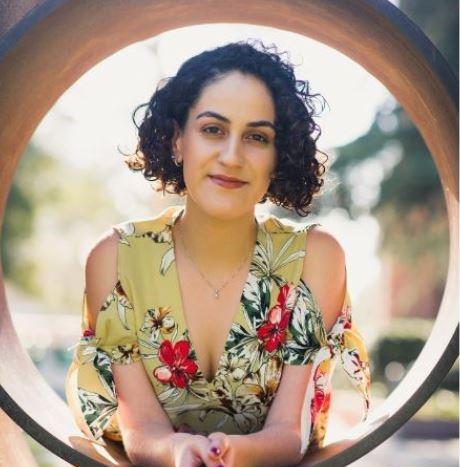
Mariam Hovhannisyan found her mind turning to cognitive neuroscience as a high school student, when a crime show she was watching prompted her to consider how differences in brain chemistry might lead one person a healthy member of society and another person a serial killer. Now, within the laboratory of Simon Davis, PhD, she analyzes brain data, applies transcranial magnetic stimulation to older adults to improve their working memory, and helps recruit patients into studies. In this week’s “spotlight” interview, Hovhannisyan talks to us about this work, why she’d be an orchestra conductor if she wasn’t passionate about neuroscience, and how she’s coping with the ongoing coronavirus epidemic.
How are you currently being affected by the COVID-19 outbreak? What’s one helpful strategy or resource that you’ve picked up to help you cope (professionally or personally)?
A lot has changed in the past two weeks, and it seems like this situation might go on for some time. Thankfully, I can work from home, but I often think about the healthcare, grocery store, and other workers, including members of my family and members of our department, who need to go in to work daily. I am very thankful for their service and it is for them, if not for ourselves, that we should practice social distancing.
Something I have found helpful is limiting my time online. This is essentially about setting a routine and sticking to it. I only allow myself one hour every day to read the news. Another helpful strategy that I used in college when I felt overwhelmed or stressed and needed a laugh was watching old SNL skits.
Have you gotten into a safe home routine yet?
I’ve been working from home for over 2 weeks now and I think I am finally starting to adapt. It’s been a challenging time, but I am very fortunate to be able to work from home. Setting a routine has been an important part of staying sane during this time.
What were your pre-COVID responsibilities within the Neurology Department? What did a typical day for you look like?
I really enjoy my job in the Neurology department, because of its interdisciplinary nature. My advisor, Simon Davis, PhD, works on projects across multiple departments. This allows me to work in a variety of settings with different kinds of people, and so my days can vary.
Some days I am in the Electric Dino lab analyzing different kinds of brain data (electroencephalography, diffusion weighted imaging), other days I am in the Brain Stimulation Research Center applying transcranial magnetic stimulation (TMS) to older adults to improve their working memory, and sometimes I am in the Memory Disorders Clinic on Morreene Road recruiting patients for our study.
What interests you the most about your work, and about cognitive science in general?
Cognitive science allows us to ask questions about brain and behavior relationships using tools that span multiple disciplines, from psychology to neuroscience to artificial intelligence. What interests me the most about my job is our capacity to use these tools to do research that has real-world relevance. In addition, having the opportunity to work with patient populations and to ask a variety of questions about their brain data.
I came to cognitive science via a peculiar route. I watched a lot of crime shows when I was in high school. I would always ask myself, why is it that some people in the same circumstances commit murders and others don’t? Is there something different about the brain circuitry of a serial killer? In college, I took a Psychology and Law class taught by Edward Geiselman that helped answer those questions. This class, and the research experiences I had at UCLA, fueled my interest in the cognitive sciences and changed the course of my academic trajectory.
What plans do you have for the future? If you could have any job in the world, what would it be?
My long-term goal is to become a neuropsychologist. I am interested in linking brain and behavior relationships in the context of aging to improve diagnostic tools.
The one job that comes to mind immediately is a conductor of an orchestra. We don’t have enough female conductors and it looks like a lot of fun!
What other passions or hobbies do you have outside of the Department?
My biggest passion is dancing. I trained in Latin dance for many years before starting college. I also enjoy visiting art museums, traveling, and photography.

"This picture is from a trip to Brazil last year. My friend and I did a 3 hour hike on a small island called Ilha Grande from a beach on one side of the island (Praia do Abrãao) to a beach on the other side of the island (Praia de Lopes Mendes)."
Photo by Daisy Banta